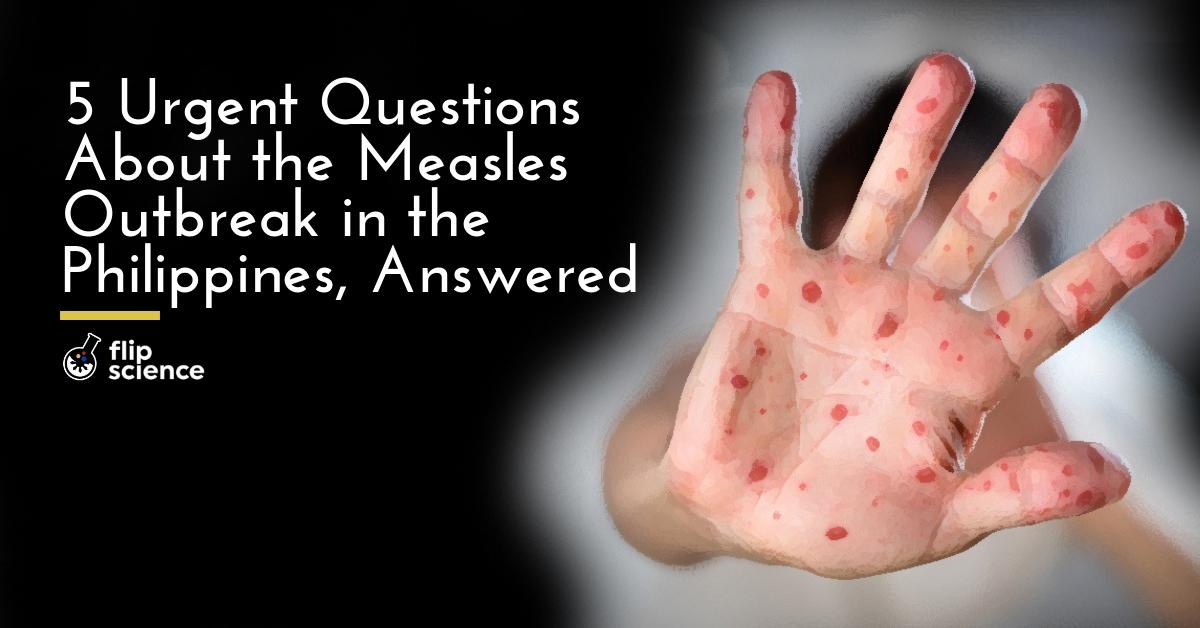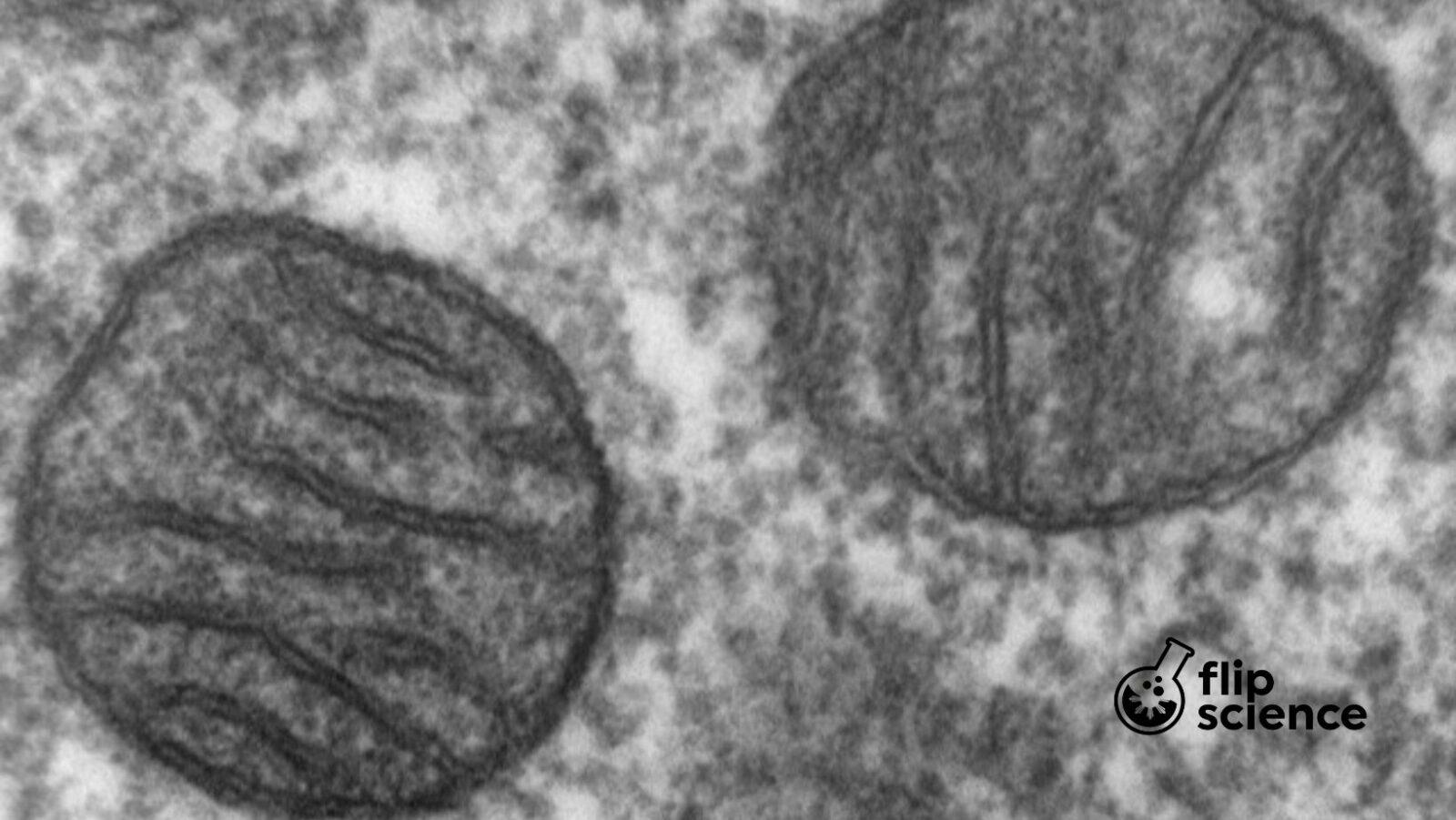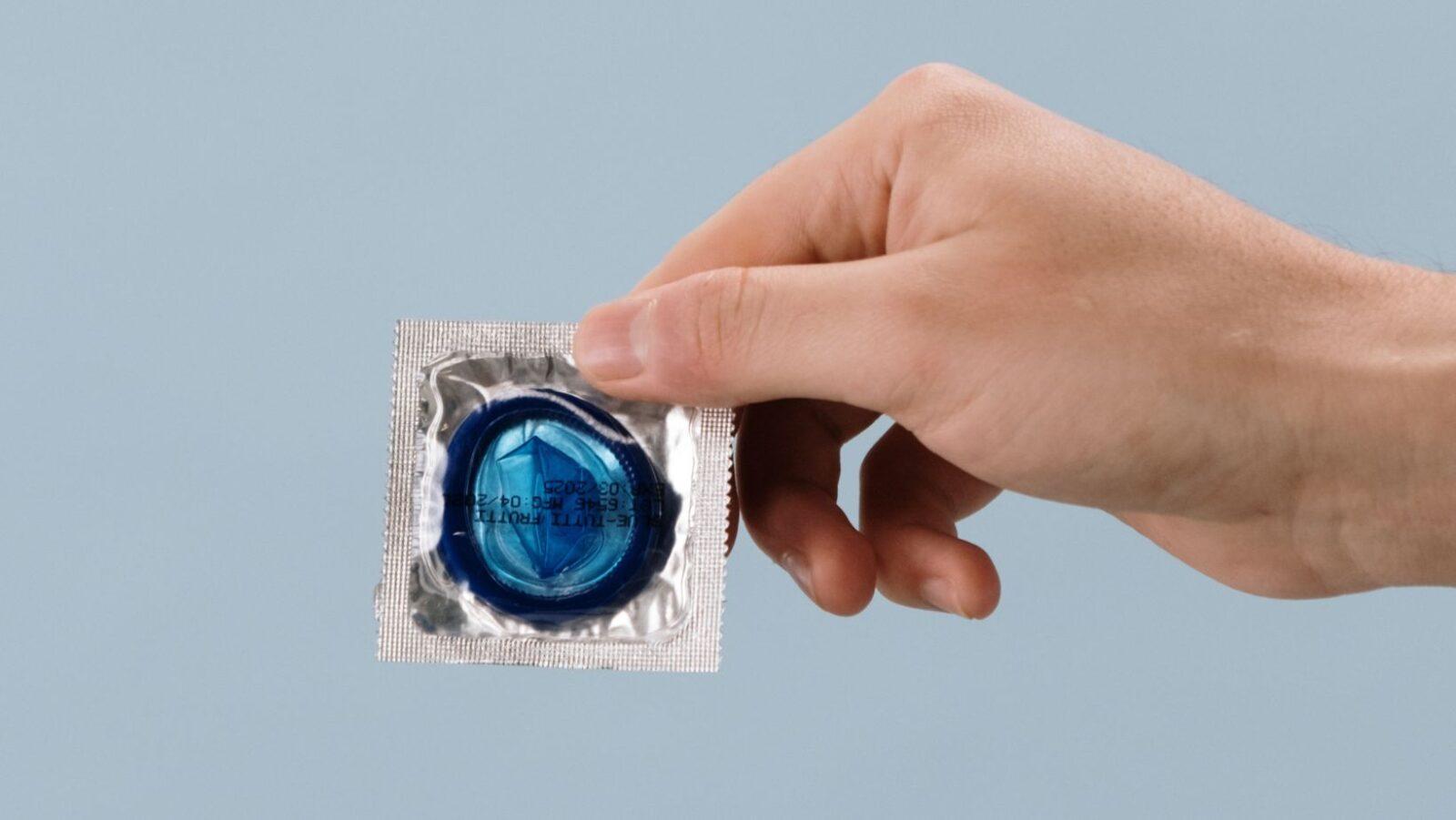
•Health officials in the Philippines declared a measles outbreak in February 2019 due to a disturbing rise in reported cases since January 1.
•Recorded incidences of this lethal yet preventable disease have increased in different parts of the world as well.
•The global measles outbreak is a result of the public’s diminished trust in vaccines, largely fueled by misinformation.
You’ve seen the news over the past couple of weeks. Children have been dying, hospitals have been running out of beds, and medical experts have been engaging with the public constantly. All of this is because of the measles outbreak in the Philippines, a phenomenon observed in different parts of the world as well. But why is this happening? What caused this horrific turn of events–and on a global scale, to boot?
And perhaps most importantly: What can we do about it?
Question #1: What does it mean when experts say there’s a measles outbreak in the Philippines?
In medical terms, an outbreak can mean:
A) The sudden detection of a disease in a community or area that has never experienced it before; or
B) A much greater number of recorded instances of a disease in a specific area than expected.
Officials from the Department of Health (DOH) first declared an outbreak of measles (locally known as tigdas) in Metro Manila. The number of measles cases from January 1 to February 6, 2019 were 550% higher than the number of cases recorded exactly one year ago. It didn’t take long before the DOH also declared outbreaks in Central Luzon, Calabarzon, Western Visayas, and Central Visayas. The department has also started closely monitoring other regions across the country.
However, the Philippines isn’t the only country experiencing a measles outbreak. In the United States and in other parts of the world, reported measles cases are on the rise, according to 2018 statistics from the World Health Organization.
Question #2: Why did the number of measles cases suddenly increase across the world?
Simply put, it’s because more and more people are refusing to get themselves and their children vaccinated.
This seems to be particularly true in the Philippines. The National Demographic and Health Survey revealed that the number of vaccinated children in the country decreased from 80% in 2008 to just 70% in 2017. Some DOH officials have even gone on record saying that the number went further down to 60% in 2018. This supports claims from the United Nations International Children’s Emergency Fund (UNICEF) that immunization rates in the Philippines have gone from 88% to 74% within the span of ten to 15 years.
Despite the fact that government hospitals and health centers offer free vaccination, recent surveys have shown that fewer Filipinos trust vaccines. In 2015, the London School of Hygiene and Tropical Medicine reported that 93% of their Filipino survey respondents trusted vaccines; in 2018, that figure dropped to 32%.
According to Health Secretary Francisco Duque III, the Dengvaxia controversy resulted in the public’s diminished trust in vaccines and lower vaccination rates. Many have criticized it as highly politicized, rife with both misinformation and disinformation, and fueled by an anti-vaccine agenda.
Question #3: How does one get measles, anyway?
A highly communicable disease caused by a virus that targets the respiratory tract, measles can spread either through the air or via direct contact. During its incubation period in the body, measles is difficult to detect and diagnose. That’s because its symptoms don’t manifest immediately. Unvaccinated children 5 years and below are particularly susceptible to the disease.
Measles patients may experience severe diarrhea, pneumonia, and even blindness. The most severe cases lead to death.
Unconfirmed statistics from the DOH reveal over 2,000 cases of measles across the Philippines, with 72 deaths. As of February 8, the San Lazaro Hospital Epidemiology Department has reported 1,187 suspected measles cases and 55 deaths in Metro Manila alone. Most of the confirmed deaths were patients between three months to four years of age.
Question #4: How do we deal with the measles outbreak?
To curb the spread of measles, over 95% of a given population must be inoculated. The measles vaccine is typically administered to children at least 6 months of age.
It is highly advised that children receive their first dose between 12 to 15 months old, and their second dose between 4 to 6 years of age. Furthermore, unvaccinated persons above 18 years and born after 1956 should receive one dose.
According to acting PhilHealth president Roy Ferrer, parents should take their unvaccinated children to any government hospital or health center. These hubs offer the measles vaccine for free to unvaccinated children and adults alike. The DOH also assures that there is enough supply of the vaccine for everyone.
Otherwise, as the number of unvaccinated children increases, so will the likelihood of further outbreaks.
Question #5: What’s in a measles vaccine? Is it really safe?
To answer the second question: Yes. In the hands of trained professionals, vaccines are safe.
The measles vaccine is an attenuated virus–a virus weakened in the laboratory–combined with other safe, non-toxic buffer and media ingredients (and zero preservatives). The full list of ingredients is on the Food and Drug Administration website (you can click this link). In fact, United States health officials call the measles vaccine “one of the safest [vaccines] out there.”
When you receive the vaccine via injection, the weakened virus triggers an infection in your body. Don’t worry, as this causes your immune system to spring to life, vanquishing the virus and preparing your internal defenses for when a stronger version of it tries to invade your body.
Why is this important?
Think of your favorite UAAP, PBA, or NBA stars. How do you think they became so good? Through practice, of course. Imagine if you were to go back in time, take them as rookies–or before they could even hold a basketball in their hands–and put them in a championship game. They would do terribly, and their opponents would literally wipe the floor with them.
Your immune system is no different. Vaccines give your body a chance to practice; to prepare against the deadly diseases that you will almost certainly encounter as you grow older.
The vaccine contains a weaker virus that your body can quickly eliminate. On the other hand, the “real” version of the virus–the one from the outside world–will hit you hard. And if your immune system isn’t trained to handle it quickly, a few days is all it will need to do lasting damage to your body–or even kill you.
Now, think of what it could do to a small child.
Bonus question: Do vaccines cause autism?
The common objection of anti-vaxxers to vaccines appears to be the belief that they present health risks and cause autism in children. However, the unfortunate truth is the anti-vaccine movement is largely propelled by a lack of knowledge regarding vaccines in general.
It’s worth noting that while the most prominent study to link vaccines to serious health risks in children has been retracted, debunked, and revealed to have been unethically conducted and based on false information, numerous studies and extensive reviews conducted over the years have found no link between vaccines and autism.
Government officials, medical professionals, and experts have all spoken: Have your children vaccinated.
Cover photo: Getty Images
References
- http://pediatrics.aappublications.org/content/134/2/325.full
- http://www.euro.who.int/__data/assets/pdf_file/0004/394060/2019_01_Epi_Data_EN_Jan-Dec-2018.pdf?ua=1
- https://io9.gizmodo.com/whats-the-difference-between-an-outbreak-and-an-epidemi-1678856394
- https://jamanetwork.com/journals/jama/fullarticle/2275444
- https://journals.plos.org/plosone/article?id=10.1371/journal.pone.0003140
- https://news.abs-cbn.com/news/02/07/19/measles-outbreaks-declared-in-more-luzon-visayas-areas
- https://newsinfo.inquirer.net/1082867/failure-of-health-system-leads-to-measles-outbreak-unicef
- https://pps.org.ph/immunize-eligible-children-against-vaccine-preventable-diseases/
- https://reliefweb.int/report/philippines/philippines-measles-outbreak-information-bulletin
- https://www.healthline.com/health/mmr-vaccine
- https://www.livescience.com/32617-how-do-vaccines-work.html
- https://www.nbcnews.com/storyline/measles-outbreak/whats-measles-vaccine-n301891
- https://www.philstar.com/headlines/2019/02/11/1892688/measles-confinement-covered-philhealth
- https://www.thelancet.com/journals/lancet/article/PIIS0140-6736(97)11096-0/abstract
- https://www.washingtonpost.com/world/2019/02/08/global-wave-measles-cases-fed-by-conspiracies-misinformation-has-health-officials-worried/
- https://www.who.int/vaccine_safety/committee/topics/mmr/mmr_autism/en/
Author: Mikael Angelo Francisco
Bitten by the science writing bug, Mikael has years of writing and editorial experience under his belt. As the editor-in-chief of FlipScience, Mikael has sworn to help make science more fun and interesting for geeky readers and casual audiences alike.






